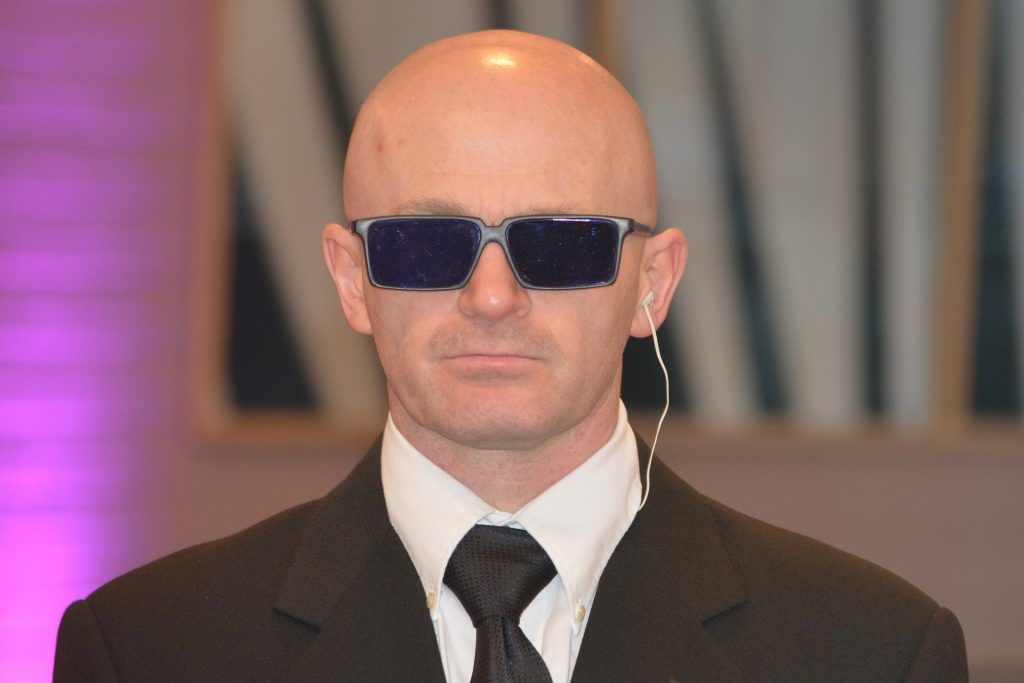What is Executive Protection?
Executive protection (EP), also called Close Protection (CP), is a security and risk mitigation measure that are taken to protect VIPs and other individuals who could be at risk due to their high-profile positions, net worth, affiliations, or geographic location.
With the creation of the Executive Protection Service, the United States Secret Service created the term “executive security” in order to protect foreign dignitaries visiting the United States.
Executive Protection vs. Close Protection vs. Bodyguards
Executive Protection is a term that is more common in the USA to refer to close protection services, personal security services, and bodyguard services. In Australia, “Executive protection” isn’t as common. It is however becoming more popular than “Close Protection” in America and elsewhere.
Are the terms interchangeable? While there may be differences in the roles, there is no doubt that there is a difference between the images. Regardless of whether you are referring to Executive Protection, Close Protect or Bodyguard the primary objective is to protect people from harm, reputational damage, and physical danger.
There are many job titles. A similar job description will be fulfilled by an Executive Protection Agent (EPA), Executive Protection Specialist (EP), Executive Protection Operative(CPO), Personal Protection Operatives (PPO), and Bodyguard (BG).
What about public perception?
People think of a bodyguard to be a large, intimidating, overpowering individual who is accompanying a celebrity, whether they are a pop star or movie star. Their bulk and brawn are used to push their client or principal through crowds full of autograph hunters and adoring fans. These celebrity bodyguards often dress casually like their principal and take on a more prominent, visible role. These celebrity bodyguards are not true Executive Protection Agents. They are less qualified, more professional and have more experience than the rest.
These “bodyguards” must have received the same core or basic training as Executive Protection Agents or Close Protection Operators. CP operatives are always looking for new career opportunities and training. The celebrity bodyguard, on the other hand, will only go to the gym and rely solely on their strength, size, and social media to find work and escape from any sticky situations.
Large bodyguards still exist and have a place in the protection industry. However, their size and body language can make a bad impression and stigmatize those who are working in professional bodyguard EP/CP positions.
Some clients want the attention their “bodyguards” draw. In the security industry, there are two types of principles: those who require closed protection and those who desire closed protection. People who do not require protection might not want it. Those who do need it may not even want it.
There is also the celebrity bodyguard, who pretends to be the celebrity and acts like it. It is easy to become enamoured with celebrities and think you are as famous and wealthy as the celebrity you are protecting. However, this is unprofessional and naive.
What is a bodyguard?
A bodyguard refers to a role in a group of Close Protection Operatives. The BG is an operative who is closest to the Principal (VIP). It provides immediate protection and extraction from hostile situations. The Personal Protection Operative (PPO) can also be called this position. Laymen refer to this position as the “Bodyguard”, while industry professionals would refer to a single operator or Individual Bodyguard (IBG) as a bodyguard.
Executive Protection Agent Roles & Responsibilities
Wikipedia states that a traditional executive protection group may include operatives who perform a range of roles in order to protect the principal.
- Detail Leader – Team leader (TL)
- Tactical Commander – Operations Director
- Assistant Detail Leader – Second in Command (2iC).
- Motorcade Lead – Security Advance Party (SAP).
- Advance Lead – Security Advance Party TTL
- Static Security Guard – Static Agent
- Mobile Agent – Patrolling Security Guard
- Protective Intelligence Agent – Intelligence Analyst (OSINT)
The term Executive Protection Agent is being used more often to describe a niche role that is not the same as the bodyguard. These EPA’s can be described as grey men and women who blend seamlessly into the corporate environment. EPA’s are smartly dressed in business attire and often do their jobs without anyone realising they are protecting property or individuals.
The Attributes of an Executive Protection Agent
EPAs are often used by CEOs and high-net-worth individuals (HNWI), as well as business executives working in corporate settings who need personal protection. These people, unlike movie stars or other celebrities, do not want to be seen as wealthy or important. The EPA should dress and look like a member of staff of the Principal’s office, or their entourage. An experienced EP operative should not present themselves as security, but they can pose as an associate from the client’s office.
A top Executive Protection Agent must also possess exceptional soft skills and communicate well. The top EPA must be able to communicate at all levels with HNWIs and dignitaries, heads of state, royalty, heads, and other notable figures. They blend in and are often undiscovered.
A competent EPA will possess exceptional organizational skills. They could be responsible for:
- Vehicle logistics
- Pre-travel liaison with foreign agencies
- Travel logistics
- To ensure that travel arrangements and movements are seamless and smooth for the Principal
All these tasks should be completed under the radar to avoid outside observation.
The overall role of an Executive Protect Agent now includes more than the protection requirement. The EPA of today is more like a personal concierge or facilitator. While this double- or triple-hatting can put a strain on an operative, it provides added value. The EPA performing these roles has the advantage that they know what the next move should be and what to expect during any given day, but it can also distract from their primary security role.
It’s a matter of ‘horses and carts. Many operatives are unable to blend in or have the wrong mindset to deal with the additional skills required to be an effective Executive Protection Agent. They may have visible tattoos, be too muscular or aggressive, and their personal image might not suit the corporate setting. Many EP operatives are seasoned professionals who have worked in various protection roles, including touring and celebrity protection. They will use all of their experience and knowledge to become a competent, knowledgeable executive protection specialist.
It is not possible to teach the skills needed to be a successful Executive Protection Operative on a course. Instead, you will need to have years of experience and travel around the world with different Principals in order to master the trade.
Training in Executive Protection
Protective security professionals consider executive protection a highly skilled field. Executive protection professionals who are elite should have advanced driving and first aid training.
Executive Protection & Bodyguard Services Brisbane, Sunshine and Gold Coast
Prosafe Security Services has a reputation for providing executive protection to high-ranking executives in the C-suite, as well as industry figures, dignitaries and heads of state. Our Executive Protection services are available in Brisbane, Sunshine Coast and the Gold Coast. With professional skills and training, our Executive Protection Specialists are regarded as the best in their field.



